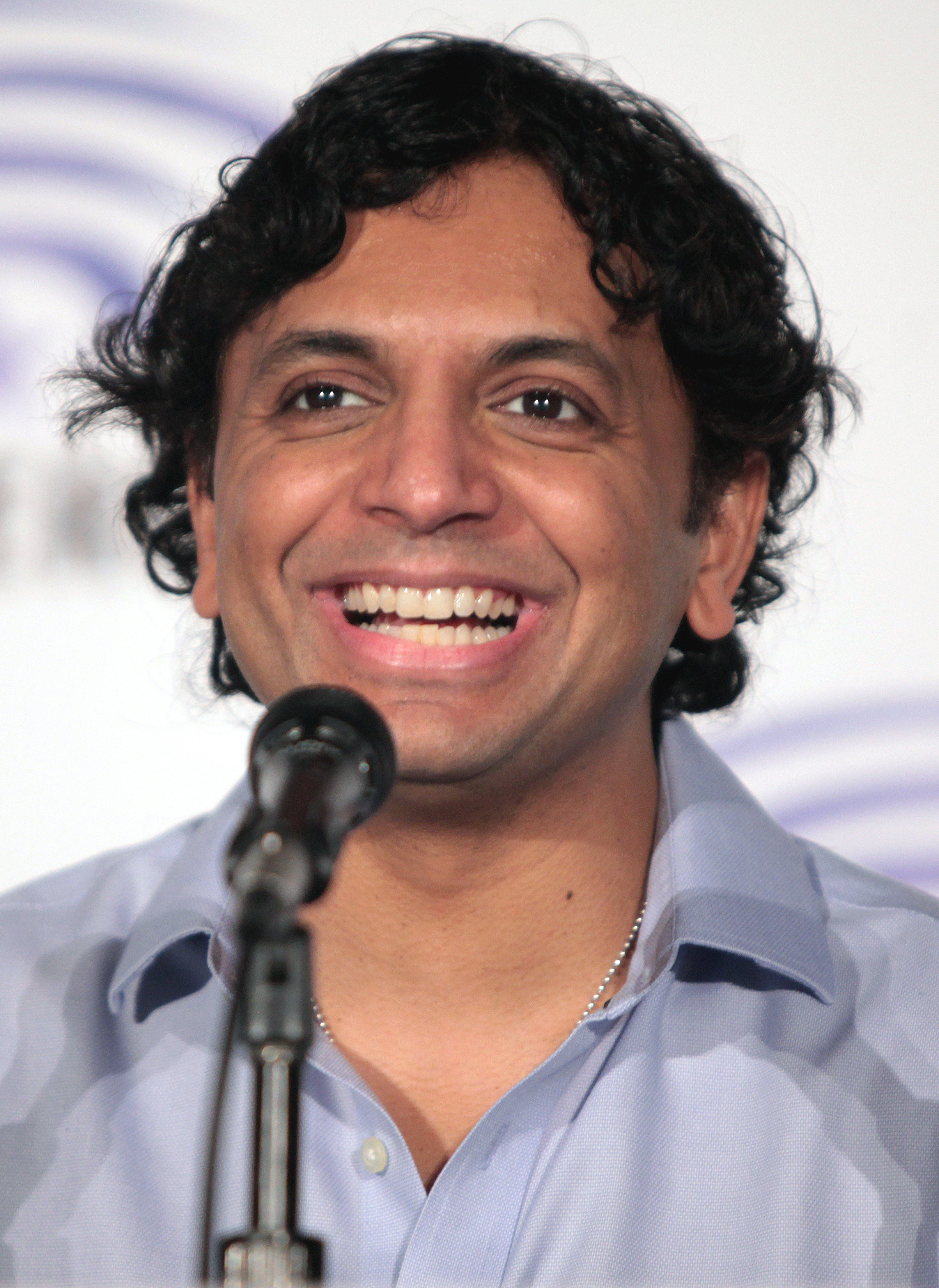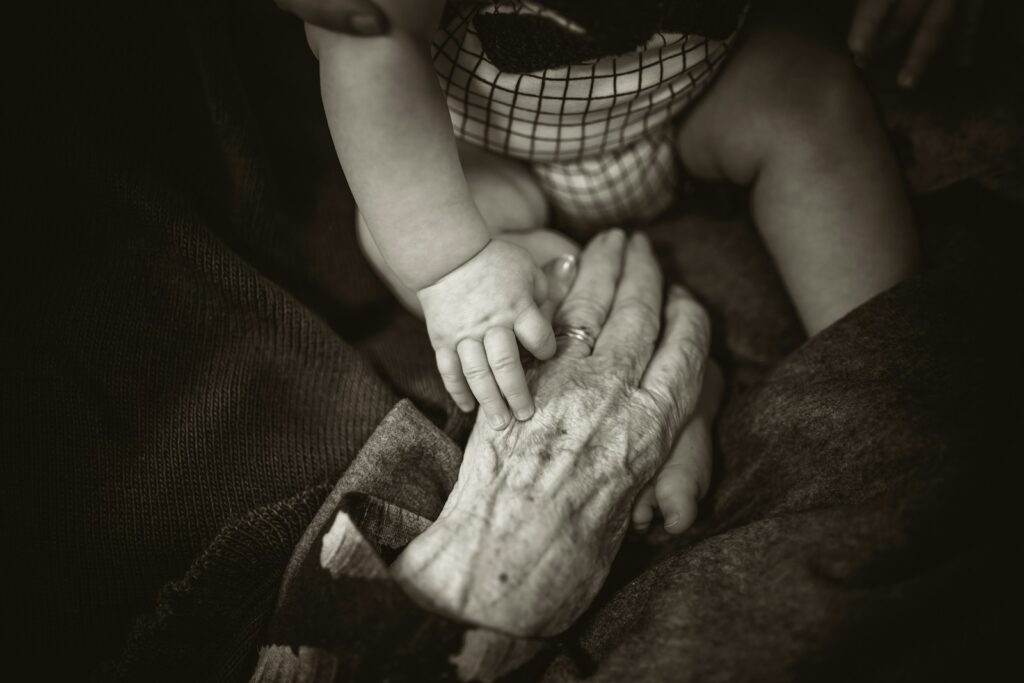
In the pantheon of cinematic thrillers that make us question the very fabric of our existence, M. Night Shyamalan’s 2021 film ‘Old’ stands as a particularly chilling meditation on the relentless march of time. Far from a typical vacation, this body horror flick based on the French-language Swiss graphic novel ‘Sandcastle’ by Pierre Oscar Lévy and Frederik Peeters, plunges an unsuspecting group of families into a temporal nightmare. They find themselves on a secluded beach where the passage of time is horrifyingly accelerated, compressing entire lifetimes into a single day.
Imagine, for a moment, a world where your most cherished plans, your very sense of self, and the predictable rhythm of life simply… stop. Or, more accurately, are put into overdrive, vanishing before your eyes in a dizzying blur. ‘Old’ isn’t just a story of survival; it’s an ‘allegorical existential sort of meditation on getting older,’ as actor Alex Wolff noted. It forces its characters, and by extension, us, to confront our ‘dysfunctional relationship to time,’ a central theme Shyamalan himself highlighted, asking why some find peace amidst such chaos and others crumble.
As we unpack the profound and unsettling narrative of ‘Old,’ we’ll explore not just the plot points, but the deeper ‘life-altering experiences’ that are brutally halted or warped for its characters. From the idyllic vacation that turns into a death trap to the cruel acceleration of natural processes, these are the moments and aspects of life that simply vanish from their weekend plans—or, indeed, their entire existence—in the blink of an eye.

1. **The Vanishing Act of a “Perfect” Family Vacation**The Cappa family, Guy and Prisca, along with their young children Maddox and Trent, embark on what is intended to be a final family vacation at a tropical resort, a desperate attempt to salvage some semblance of peace amidst their impending separation. This idyllic setting, however, quickly morphs into the antithesis of their hopes. The complimentary drinks and the manager’s invitation to a ‘secluded beach’ initially promise an exclusive, serene escape, a cherished weekend plan.
However, this promise of tranquility and familial bonding is the first to vanish. Upon arrival at the beach, the picturesque landscape reveals its sinister nature, transforming from a serene hideaway into a claustrophobic, inescapable prison. What began as an attempt to mend a fractured family quickly spirals into a fight for survival, where every moment brings not relaxation, but accelerated decay. The very notion of a “vacation” ceases to exist, replaced by a primal struggle against an invisible enemy: time itself.
The initial innocence and hope associated with the tropical getaway are systematically stripped away. The children’s brief friendship with Idlib, the resort manager’s nephew, and their message decoding game, are fleeting glimpses of a normal world that the beach swiftly erases. This transformation from a hopeful retreat to a horrifying ordeal establishes the film’s central conflict, immediately showcasing how quickly life’s expected trajectories can be brutally disrupted.
Read more about: Seriously, Where Did They Go? 12 Iconic American Foods That Vanished From Our Tables

2. **The Sudden Acceleration of Life’s Natural Pace**One of the most terrifying aspects of the beach is its ability to compress time, causing occupants to undergo the equivalent of one year of aging every 30 minutes. This brutal acceleration means that the gradual, predictable pace of human life, a process we all inherently understand and expect, simply stops. The natural progression of growth, development, and decay is no longer a slow burn but an instantaneous, shocking flash.
This concept is profoundly unsettling because it attacks the very foundation of how we perceive our existence. The slow, unfolding narrative of a life—childhood, adolescence, adulthood, old age—is instantly fast-forwarded. Characters are forced to witness their bodies and minds change at an unimaginable speed, losing the luxury of experiencing life’s milestones one by one. The comfort of a predictable future vanishes, replaced by an urgent, terrifying present.
The dramatic implication of this phenomenon is that the characters’ entire “weekend plans” for life, their long-term goals, and their very sense of identity are rendered meaningless. Any long-term hopes or dreams for the future—career, family, personal growth—are abruptly snatched away, leaving them with only the immediate, desperate struggle to comprehend and survive their rapidly dwindling time. The natural rhythm of being human is utterly destroyed.
Read more about: Otis Davis: An Olympic Pioneer Who Shattered Barriers on Track and Defied Racism, Dies at 92

3. **The Erasure of Childhood and Adolescent Dreams**For Maddox and Trent Cappa, along with Charles and Chrystal’s daughter Kara, the beach doesn’t just accelerate life; it outright steals their childhoods and adolescent years. The innocent play of young children quickly morphs into the complex anxieties of teenagers, and then the grim realities of adulthood, all within the span of hours. This abrupt transition means their dreams, their potential, and the experiences unique to youth vanish without a trace.
Trent, initially a young boy playing decoding games with Idlib, is seen rapidly aging into a teenager. Kara, also a young child, experiences an accelerated adolescence, leading to a rapid pregnancy and childbirth, followed by the tragic death of her baby due to the accelerated passage of time. These events underscore the brutal stripping away of not just years, but entire developmental stages, denying them the right to navigate youth at a natural pace.
The innocence, curiosity, and boundless potential typically associated with childhood and adolescence are crushed under the weight of accelerated aging. These young characters are forced into premature maturity, confronting adult challenges like , childbirth, and death before their minds and bodies are ready. Their entire future, once a blank canvas of possibilities, is abruptly filled and then emptied, making their “childhood dreams” a cruel, vanished memory.

4. **The Disappearing Illusion of Medical Certainty**On a normal timeline, underlying medical conditions are often slow-growing, manageable, or at least predictable. However, on ‘Old’s’ beach, this illusion of medical certainty, of having time to address health issues, vanishes entirely. Every character with a pre-existing ailment faces its rapid, life-threatening acceleration, turning chronic conditions into immediate, fatal emergencies.
Prisca Cappa’s benign slow-growing ovarian tumor, for instance, rapidly grows to a life-threatening size in mere hours, requiring an emergency surgical removal by Charles. Brendan, the rapper, suffers from hemophilia, which manifests in severe nosebleeds, made worse by Charles’s attack. Patricia Carmichael, the epileptic psychologist, suffers a fatal epileptic seizure after her condition rapidly worsens. Charles himself experiences his schizophrenia escalate into violent episodes.
Chrystal, Charles’s trophy wife, suffers from hypocalcemia, which results in her bones repeatedly rupturing and improperly healing, leading to a gruesome, contorted demise. These rapid deteriorations highlight how the beach weaponizes biology, transforming normal medical “plans” for management or treatment into immediate, catastrophic failures. The human body’s resilience, usually a source of comfort, becomes its greatest vulnerability when time is accelerated.
5. **The Decay of Mental Fortitude Under Pressure**The immense psychological strain of rapid aging and inescapable doom quickly erodes the mental fortitude of the characters, a “hobby” of resilience and composure that vanishes under the extreme conditions. Charles, the cardiac surgeon, is a prime example of this terrifying decay, as his pre-existing schizophrenia rapidly intensifies, turning him from a suspicious figure into a violent, murderous threat.
His mental state, which would typically be managed over years, spirals out of control in mere hours. This accelerated deterioration leads him to commit heinous acts, including cutting Brendan with a pocketknife and later killing him in a fit of rage. The beach not only attacks the body but relentlessly dismantles the mind, shattering the characters’ ability to cope and reason, replacing it with paranoia and aggression.
The collective trauma and the individual battles with mental health are condensed, offering no time for healing or adjustment. Charles’s schizophrenic episodes become more frequent and severe, culminating in a final, deadly attack on Guy and Prisca. This dramatic portrayal underscores how quickly mental stability, a cornerstone of daily life, can utterly vanish when faced with an existential crisis of unprecedented scale.
Read more about: In Front of the Lens: 12 Actors Whose Profound On-Screen Devotion Led to Unforeseen Personal Turmoil

6. **The Interrupted Arc of Human Connection and Conflict**Relationships, particularly those as complex as a marriage, typically evolve over years, experiencing highs, lows, conflicts, and reconciliations. For Guy and Prisca, the beach compresses this entire arc into a single day, forcing them to confront their strained marriage, its underlying issues, and ultimately find peace in its rapid conclusion. Their normal “plans” for a marital future, however uncertain, simply cease to be.
The initial tension of their impending separation, overheard by their children, quickly becomes secondary to their immediate struggle for survival. Yet, amidst the chaos and rapid aging, the core of their relationship is laid bare. They are forced to rely on each other, to make difficult decisions, and to witness each other’s rapid decline, accelerating the emotional journey that would normally span decades.
In their final moments, as elderly versions of themselves, Guy and Prisca make amends before dying peacefully of natural causes, moments apart. This poignant scene highlights how the beach, while stealing their time, paradoxically forces an expedited resolution to their emotional conflict. The slow, nuanced development of their bond is interrupted, but a profound, accelerated understanding and acceptance ultimately emerge before their lives vanish completely.
Continuing our chilling exploration of ‘Old’s’ vanishing world, we now turn to the deeper layers of loss and revelation that unfold as the characters desperately try to comprehend and escape their horrifying predicament. From the futility of their attempts to flee the temporal prison to the shocking truth behind their confinement, these are the remaining experiences and certainties that are irrevocably halted or dramatically transformed by the beach’s terrifying, time-bending power.
Read more about: Beyond the Headlines: Angelina Jolie’s Unyielding Journey Through Hollywood, Humanitarianism, and Personal Trials
7. **The Frustrated Pursuit of Escape**For the trapped families, the initial shock quickly gives way to a primal instinct: escape. The characters, confronted with their rapidly dwindling time, make increasingly desperate attempts to break free from the secluded beach. Yet, each endeavor is met with a bizarre and terrifying consequence, as any attempt to leave results in them blacking out and inexplicably waking up back where they started, as if an invisible force field actively prevents their departure.
This inability to escape quickly erodes any lingering hope, turning what should be a straightforward act of self-preservation into a cruel, existential joke. The desperate attempts become more frantic, but also more tragic. We witness Jarin, Patricia’s husband, attempting to swim for help, only to drown in the process, a grim testament to the beach’s lethal grip. Young Kara, rapidly aged into a teenager, tries to climb over the surrounding mountain, a futile effort that ends in her fatal fall, underscoring the relentless, unforgiving nature of their confinement.
The beach doesn’t just accelerate their lives; it actively thwarts their agency, turning escape into a deadly “hobby” they can no longer pursue. These repeated failures, each ending in injury or death, highlight the profound sense of helplessness engulfing the group. Their bodies may be aging at an unnatural rate, but their minds are also trapped, struggling against an unseen, insurmountable barrier that makes true freedom a rapidly vanishing dream, until two young survivors find a way.
Read more about: The Unveiling of a Corporate Betrayal: How Political Pressure and Power Plays Led to the Untimely End of Stephen Colbert’s Late Show Era

8. **The Perverted Cycle of Life and Death**While Section 1 touched upon the acceleration of life’s natural pace, the beach perverts the entire, predictable cycle of life and death, turning these fundamental biological processes into grotesque spectacles. Birth, growth, and demise are no longer gradual, meaningful milestones but horrifyingly compressed events, stripping them of dignity and context. The natural rhythm that underpins human existence is utterly annihilated, replaced by a brutal, fast-forwarded reality.
Consider the heartbreaking instance of Kara’s rapid pregnancy and childbirth, an accelerated adolescence leading to a baby born only to starve to death in mere moments. This isn’t just accelerated aging; it’s the cruelest distortion of life’s beginning, where the promise of new life is instantly snuffed out by the very mechanism that created it. Similarly, the corpse of Brendan’s companion is seen fully decomposing in a matter of hours, showcasing a macabre efficiency that denies even death its customary, respectful slowness.
For the adults, too, the end comes abruptly and without warning. Patricia suffers a fatal epileptic seizure as her condition rapidly worsens, while Charles succumbs to a fatal blood infection after being slashed by Prisca with a rusted knife. Even the peaceful passing of an elderly Guy and Prisca, moments apart, feels unnatural in its speed, a poignant yet rushed conclusion to a lifetime condensed into a single day. The beach steals the natural ebb and flow, making the “cycle of life and death” a terrifying, accelerated endpoint.
Read more about: Beyond Stifler’s Wild Antics: The Poignant Real-Life Odyssey of Seann William Scott

9. **The Shocking Erosion of Ethical Boundaries in Research**Perhaps the most disturbing revelation, one that truly reshapes the entire narrative, is the exposure of the beach’s true purpose: it is not a random anomaly but a meticulously controlled environment for unethical human experimentation. The serene tropical resort is merely a front for a research team from the pharmaceutical company Warren & Warren, transforming the characters’ horrific ordeal into a chilling indictment of corporate greed and scientific hubris.
Guests with pre-existing medical conditions, like Prisca’s ovarian tumor or Patricia’s epilepsy, are lured to the secluded beach, their drinks secretly spiked with new medical drugs. The beach’s natural time-acceleration property allows the researchers to complete lifelong drug trials within a single day, compressing decades of observation into mere hours. This monstrous exploitation of human lives for rapid data collection represents a complete collapse of medical ethics, turning individuals into unwitting, disposable test subjects.
The resort employees, including the manager and the driver who takes guests to the beach, are complicit monitors, tracking the progress of these brutal trials. This systematic, cold-blooded approach to human suffering for profit exposes the darkest corners of scientific ambition unchecked by moral considerations. The idea of medical research, meant to heal and improve lives, is here perverted into a horrifying “hobby” of observation and exploitation, where the participants’ very existence is merely a data point in a terrifying, accelerated experiment.
Read more about: Beyond the Dashboard: Unmasking the Shocking Data Collection Habits of Your Connected Car

10. **The Unexpected Realities and Challenges of Film Production**Beyond the harrowing narrative, the creation of ‘Old’ itself presented its own set of fascinating challenges, giving us a glimpse into the vanished norms of filmmaking during an unprecedented global crisis. M. Night Shyamalan’s decision to adapt the graphic novel ‘Sandcastle’ meant embarking on a production journey unlike any other, with an $18 million budget and a bold choice of location far from his usual Philadelphia haunts.
Principal photography took place in the Dominican Republic for three months, a feat made even more remarkable by the fact it occurred during the height of the COVID-19 pandemic. Shyamalan, meticulous in his approach, ensured the safety of his crew by paying for their ten-week hotel stay, a proactive measure that resulted in no positive virus tests throughout the entire shoot. This focus on practical, on-location filming, using 35mm film and predominantly a single, claustrophobic beach setting (Playa El Valle), speaks to a dedication to craft amidst adversity.
The film’s inspirations also reveal much about Shyamalan’s vision, drawing from diverse cinematic influences like the Australian New Wave films ‘Walkabout’ and ‘Picnic at Hanging Rock,’ as well as classics like ‘The Exterminating Angel’ and even ‘Jaws’ and ‘The Twilight Zone.’ His use of Akira Kurosawa’s filming techniques from ‘Rashomon’ and ‘Ran’ to enhance the claustrophobic atmosphere demonstrates a deep engagement with cinematic history. Personal touches, such as his daughter Ishana serving as second unit director and his other daughter Saleka composing an original song inspired by marriage vows, further highlight the unique, family-driven “hobby” of this challenging production. Even actors, like Alex Wolff, faced extreme conditions, recounting passing out during the pregnancy scene due to high temperatures, underscoring the physical demands of bringing this story to life.
Read more about: Sydney Sweeney’s Surprising Financial Reality: How Her Off-Screen Ventures Outpace Hollywood Earnings

11. **The Fickle Nature of Critical Consensus**As with many of M. Night Shyamalan’s works, ‘Old’ found itself at the center of a polarized critical debate, showcasing how the “hobby” of critical analysis can diverge wildly. The film garnered “mixed reviews,” a testament to its divisive nature, with Rotten Tomatoes reporting 50% positive reviews and an average rating of 5.50/10, while Metacritic assigned a score of 55 out of 100. Audiences, too, were split, with CinemaScore awarding a “C+” grade.
The primary criticisms often zeroed in on the screenplay and dialogue. Wendy Ide of The Observer found the exposition “ponderous and mannered,” questioning character believability. Alissa Wilkinson from Vox bluntly stated that Shyamalan “has not grown any more skilled at writing dialogue over the years,” while Barry Hertz of The Globe and Mail lamented “stilted dialogue that runs in circles, dumb-dumb plot holes.” However, not all reviews were negative. Some critics, like Germain Lussier of Gizmodo and Nick Allen of The Playlist, appreciated the film’s “sadistic glee” and “pitch-black comedy,” recognizing a self-aware horror at play.
Beyond the script, the film’s premise and cinematography frequently earned praise. Jocelyn Novec of the Associated Press lauded its “enticing premise and pretty scenery,” and Richard Roeper described the main location as “absolutely breathtaking.” The controversial twist ending, a Shyamalan trademark, also sparked strong opinions; many, like Alissa Wilkinson, found the graphic novel’s unexplained ending “more satisfying,” while Peter Travers criticized Shyamalan’s “clumsy” handling of potent themes. This varied critical response highlights that for some, the film’s daring concept and visual execution shone through, while for others, its narrative execution ultimately proved too jarring to fully appreciate.
Read more about: Oscar Season 2025: Unpacking the Snubs That Sparked Outrage and Redefined Hollywood’s Awards Narrative

12. **The Unforeseen Victory for Justice**Amidst the despair and accelerated demise, a glimmer of hope emerges in the form of justice, a “hobby” that nearly vanishes but ultimately prevails. The survival of Maddox and Trent, now middle-aged, becomes the unlikely catalyst for exposing the dark operations of Warren & Warren. Their ingenious use of a secret message left by Idlib, the resort manager’s nephew, leads them to an underwater coral passage, a perilous escape route from the beach’s influence.
Against all odds, they navigate this passage, surviving the monitoring employees who assume their demise. Armed with a notebook filled with the names of all those who perished on the beach, a chilling ledger of the company’s victims, they encounter vacationing police officer Greg Mitchel. This crucial interaction transforms their personal tragedy into a broader fight against injustice, turning their survival into a powerful testimony.
The evidence in the notebook, combined with Mitchel’s investigation revealing that everyone listed is a missing person, swiftly dismantles the pharmaceutical company’s heinous scheme. The researchers are arrested, and subpoenas are sent to the wider Warren & Warren corporation, signaling a significant victory against the exploitation of human life. Trent and Maddox are set to be reunited with their aunt, closing the loop on their harrowing ordeal with a hard-won sense of closure and the reinstatement of justice, proving that even in a world where time flies, accountability can still catch up.
Read more about: Need a Reminder: The ’50s? These 12 Unforgettable Icons Were the Absolute Legends of Talent and the Decade’s Defining Moments!
As we conclude our journey through the vanishing experiences of ‘Old,’ it’s clear that M. Night Shyamalan crafted more than just a horror film. He delivered a profound, unsettling meditation on time, existence, and the fragility of our very lives. The movie forces us to confront our own relationship with the clock, making us question what truly matters when every moment is precious, and every certainty can vanish in the blink of an eye. In a world where hobbies and habits can be fleeting, ‘Old’ reminds us that the most enduring ‘plans’ we have are often those we take for granted: our time, our health, and our connections to one another. And sometimes, it takes a terrifying beach to make us truly appreciate them.





